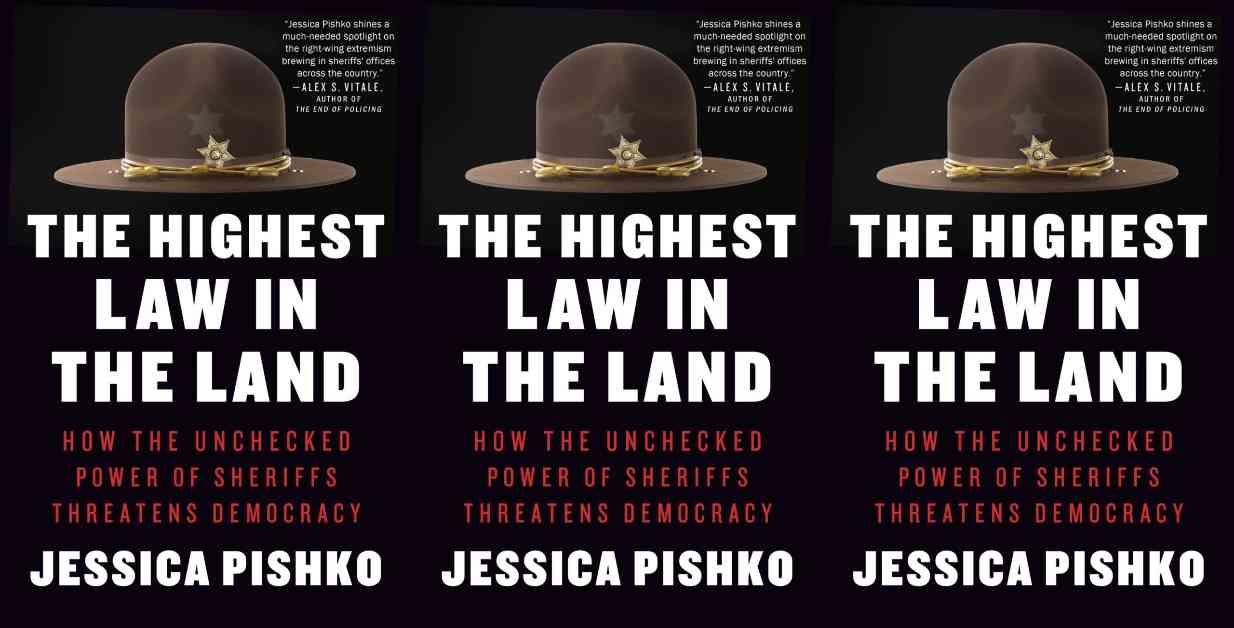Mark Lamb decided to run for sheriff of Pinal County, Arizona, after his pest control business failed and a police officer friend gave him a ride-along. “I had this deep burning desire to run for sheriff. I knew it was the Lord speaking to me and telling me I had a path,” Lamb said, as recorded in The Highest Law in the Land: How the Unchecked Power of Sheriffs Threatens Democracy, a new book from investigative journalist and attorney Jessica Pishko.
Sheriffs hold a significant amount of power, with the ability to make arrests, oversee arsenals, and run jails. Surprisingly, many states don’t require candidates for sheriff to have any particular training or knowledge about law enforcement. Jessica Pishko’s book sheds light on how right-wing sheriffs like Lamb have formed a conservative movement that promotes the idea of sheriffs as chosen by God to carry out various missions, including addressing conspiracy theories like voter fraud or border invasions.
In her detailed 500-page volume, Pishko explores how modern sheriffs, like Lamb, have utilized social media and streaming platforms to gather followers and support. These sheriffs have become increasingly powerful figures at the local level, running large sheriff departments with substantial budgets. The book also delves into the historical context of sheriffs in America, portraying them as enforcers of the ethnic divide with a history rooted in racism.
Pishko’s investigation reveals how sheriffs have aligned themselves with extremist groups and political figures, with some even believing in unchecked constitutional powers that allow them to deputize constituents and conduct investigations at their discretion. The book also highlights the influence of groups like the Constitutional Sheriffs and Peace Officers Association (CSPOA), founded by individuals like Richard Mack, a prominent figure in the conservative sheriff movement.
The narrative presented in The Highest Law in the Land raises important questions about the role of sheriffs in modern America and calls for the abolition of the position altogether. Pishko’s research, which includes attending meetings and gathering firsthand accounts from various sources, provides a comprehensive look at the current state of sheriffs across the country.
While the book focuses on the alarming power wielded by some sheriffs, it also acknowledges the efforts of reform-minded sheriffs, particularly in larger counties like Dallas and Harris in Texas. However, the question of what would replace the sheriff’s office remains unanswered, especially in rural areas where sheriffs are the primary responders to emergency calls.
As the 2024 elections approach, the future of sheriffs and their influence on American democracy remains uncertain. The stories of figures like Pamela Elliott, a former sheriff featured in the book, serve as a reminder of the complexities and challenges associated with law enforcement at the local level. The Highest Law in the Land offers a thought-provoking examination of the unchecked power of sheriffs and its implications for democracy in the United States.
